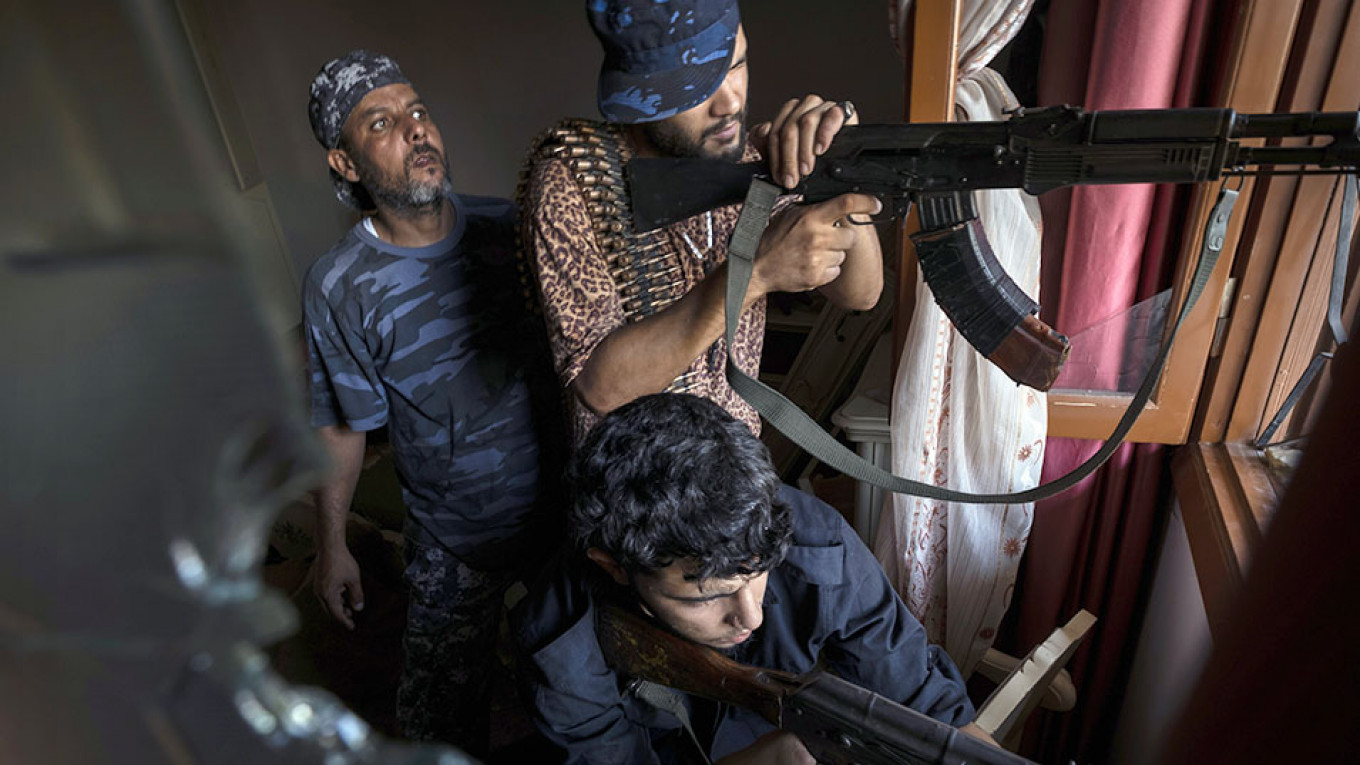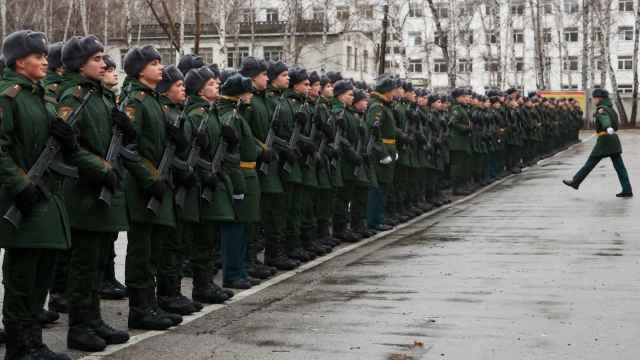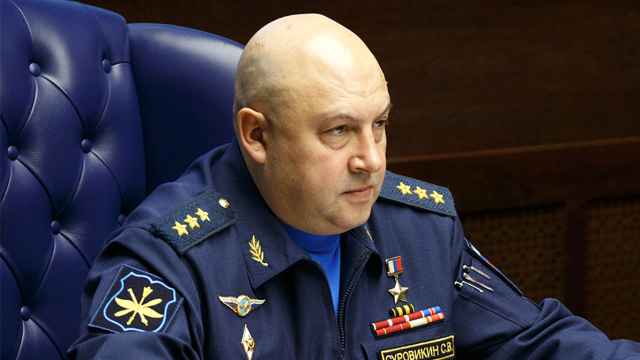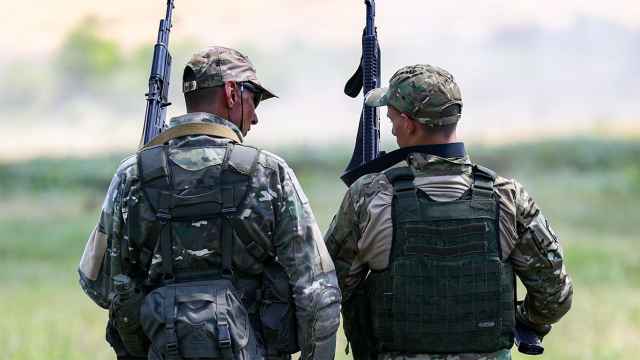A private army linked to Russian President Vladimir Putin has begun fighting on the front lines of the Libyan war, according to people familiar with the matter, the latest projection of Russian power following a decisive military intervention in Syria.
More than 100 mercenaries from the Wagner group headed by Yevgeny Prigozhin, also known as “Putin’s chef” for his Kremlin catering contracts, arrived at a forward base in Libya in the first week of September to support eastern strongman Khalifa Haftar’s assault on the capital Tripoli, said the people, who included Libyan and Western officials. All asked not to be named because they weren’t authorized to speak with the press.
A Russian mercenary commander also confirmed that Wagner contractors were fighting in Libya, and said that some had been killed in action there. Their arrival this month coincided with an escalation in airstrikes in support of Haftar, who’s pushing for decisive gains on the battlefield to strengthen his hand before an international peace conference expected next month. His forces have been bogged down at Tripoli’s outskirts since early April.
An official with Haftar’s Libyan National Army said no Russian or other foreign fighters were within its ranks. Prigozhin didn’t answer emailed questions. Putin’s spokesman Dmitry Peskov said they have no information regarding mercenaries in Libya.
Prigozhin has made himself a key player in Russia’s increasingly expansive foreign policy. Last month, Bloomberg reported that his mercenaries in Syria are readying an assault on rebel-held Idlib to end that country’s eight-year-long civil war. In the Central African Republic, his contractors are propping up a government that doesn’t control most of the country; elsewhere in Africa, his operatives are offering security, arms training and electioneering services to strongmen. In the U.S., a company owned by Prigozhin was indicted on charges of bankrolling Russian meddling in the 2016 election.
Foreign intervention
In Libya, his men join an already crowded battlefield. The United Arab Emirates and Egypt also support Haftar, while Turkey backs the United Nations-recognized government in Tripoli. Both sides are attacking each other with armed drones, with the U.A.E. deploying Chinese Wing Loongs and the Tripoli government using Turkish models. Wagner’s men have been providing Haftar with artillery support, two Western diplomats said.
Libya’s Interior Minister Fathi Bashagha told Libya Al-Ahrar TV on Monday that Haftar’s forces had first employed Sudanese soldiers, “and after they failed they relied on the Wagner company.”
In Libya, home to the largest oil reserves in Africa, Russia has supported Haftar while also lobbying for a political role for Saif al-Islam al-Qaddafi, the son of the late Kremlin-friendly dictator Moammar Qaddafi. In July, two Russian citizens connected to Prigozhin were arrested on charges of seeking to influence possible elections in Libya, with Libyan officials saying evidence collected shows they also had plans to interfere in vote campaigns elsewhere in Africa. They are still being held.
The mercenaries were first sent to Haftar’s forward Jufra base before deploying around Tripoli’s outskirts, the Western diplomats said. Two senior security commanders with Tripoli’s UN-backed Government of National Accord said the contractors have been targeted in air strikes, including a drone strike on Sept. 9 at a farm south of Tripoli that they’d been using as a base.
Drone attacks
Libyan, Arab and Western officials say Turkey is carrying out the strikes on behalf of the government in Tripoli. The drones are supplied and operated by a company called Baykar Insansiz Hava Araci Sistemleri, which is owned by the family of a son-in-law of Turkish President Recep Tayyip Erdogan. Both Baykar and a Turkish government official declined to comment for this story.
Libya has been under a poorly enforced UN arms embargo since 2011, with Turkey, Russia, the U.A.E., Egypt, France and others supporting either side — or in some cases — both sides of the civil war. For the most part, Washington, with more pressing priorities elsewhere, has watched as other powers battle each other for dominance in the OPEC state.
The deployment to combat areas marks Prigozhin’s most direct intervention yet in the Libyan war, just weeks ahead of an international peace conference in Berlin that global powers hope will lead to a cease-fire.
A Message from The Moscow Times:
Dear readers,
We are facing unprecedented challenges. Russia's Prosecutor General's Office has designated The Moscow Times as an "undesirable" organization, criminalizing our work and putting our staff at risk of prosecution. This follows our earlier unjust labeling as a "foreign agent."
These actions are direct attempts to silence independent journalism in Russia. The authorities claim our work "discredits the decisions of the Russian leadership." We see things differently: we strive to provide accurate, unbiased reporting on Russia.
We, the journalists of The Moscow Times, refuse to be silenced. But to continue our work, we need your help.
Your support, no matter how small, makes a world of difference. If you can, please support us monthly starting from just $2. It's quick to set up, and every contribution makes a significant impact.
By supporting The Moscow Times, you're defending open, independent journalism in the face of repression. Thank you for standing with us.
Remind me later.






